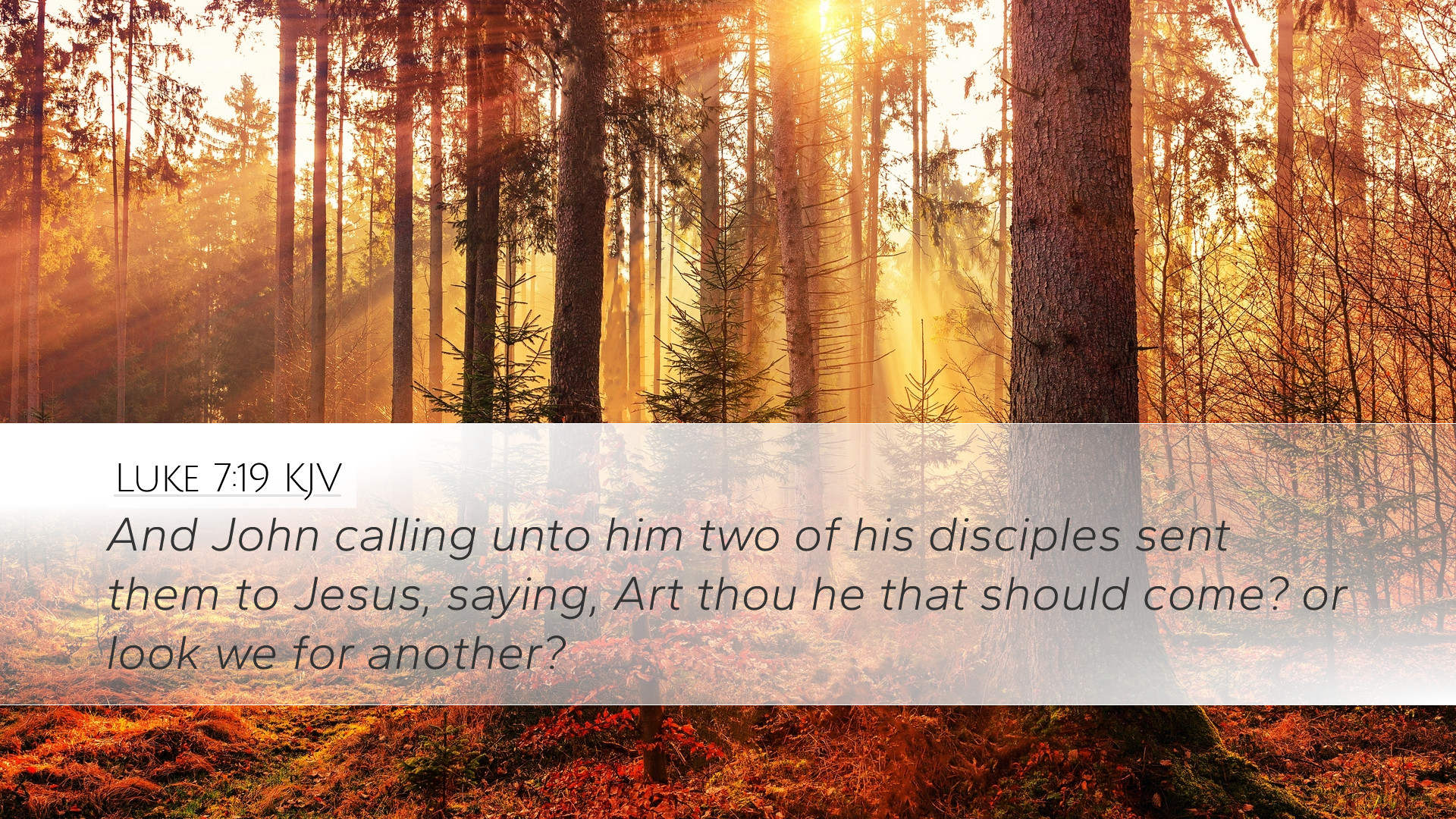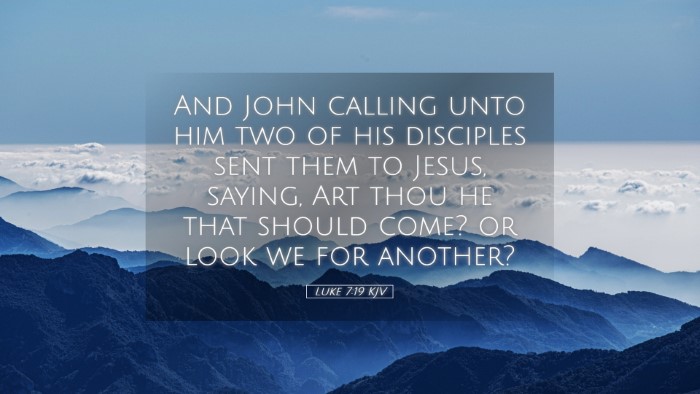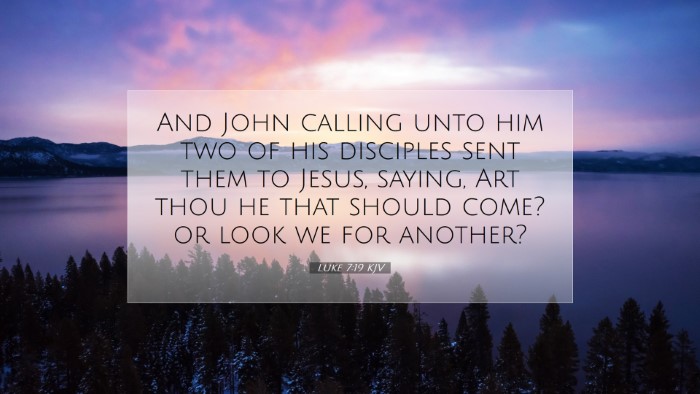Commentary on Luke 7:19
Verse Overview: Luke 7:19 states, "And John calling unto him two of his disciples sent them to Jesus, saying, Art thou he that should come? or look we for another?" This inquiry by John the Baptist is a pivotal moment that reflects his role as the forerunner of Christ and his profound engagement with doubt amidst trials.
Contextual Background
Understanding this verse requires recognition of its placement within the broader narrative of the Gospel. John the Baptist, earlier heralded as the one who would prepare the way for the Messiah (Matthew 3:3), now finds himself imprisoned, facing uncertainty about Jesus’ true identity.
Historical Context
John's imprisonment by Herod Antipas (Luke 3:19-20) highlights a significant shift. He is no longer the active prophet preaching in the wilderness but is now in a state of confinement. This change in circumstance could understandably lead to moments of reflection on his mission and the reality of Christ's advent.
Theological Implications
The inquiry posed by John raises fundamental questions about faith and doubt. The veracity of Jesus as the awaited Messiah is challenged by John's situation. Herein lies a crucial aspect for contemplation among theologians and scholars: even the greatest prophets are subject to crises of faith.
Matthew Henry's Insights
According to Matthew Henry, John’s question is indicative of the depth of his consideration regarding the nature of Christ's mission. He points out that even a man of such esteemed faith can encounter doubt when circumstances become dire. This emphasizes the fragility of human certainty, regardless of one’s spiritual stature.
Albert Barnes' Analysis
Albert Barnes elaborates on John's role as a witness to Christ. John had declared Jesus as the Lamb of God (John 1:29), yet he still felt compelled to seek confirmation of Jesus’ identity. Barnes argues that John's question expresses a longing for clarity regarding the fulfillment of prophecy—an acknowledgment that faith sometimes requires reassurance.
Adam Clarke's Commentary
Adam Clarke highlights the significance of sending disciples to Jesus rather than inquiring himself. This act symbolizes the importance of seeking knowledge through divine revelation. Clarke suggests that John's ministry was to guide others to Christ, making his request through his disciples an act of faith—the disciples needed to encounter Jesus themselves.
Reflections on Faith and Doubt
The duality represented in John's question serves as a mirror for many believers today. It challenges them to confront their own uncertainties about faith and the perceived silence of God during trials.
- Doubt as a Catalyst for Growth: Doubt can lead to a deeper understanding of faith. The inquiry illustrates that questioning is a part of spiritual growth.
- The Nature of Jesus' Confirmations: Jesus’ eventual response emphasizes that He fulfills prophecies and provides categorical evidence of His messiahship through His works (Luke 7:22).
Application in Modern Ministry
This passage is profoundly relevant for contemporary ministry. Pastors, students, and scholars can draw several key applications:
- Encouragement in Times of Despair: Ministers should assure congregants that questioning their faith, like John, is a natural human experience.
- Importance of Seeking Truth: Individuals are encouraged to actively seek Jesus through prayer, scripture, and community.
- Emphasizing Testimonies: Sharing personal experiences of faith amidst doubt can bolster community strength. Just as John’s disciples learned directly from Jesus, modern believers grow through mutual encouragement.
Conclusion
Luke 7:19 serves as a profound reminder of the intersection of faith and doubt. The inquiry by John the Baptist encapsulates the essence of human experience in seeking the divine. As a result, it enriches the dialogue within theological study and pastoral practice, reinforcing the necessity for continual engagement with Christ and His teachings amidst life's challenges.


